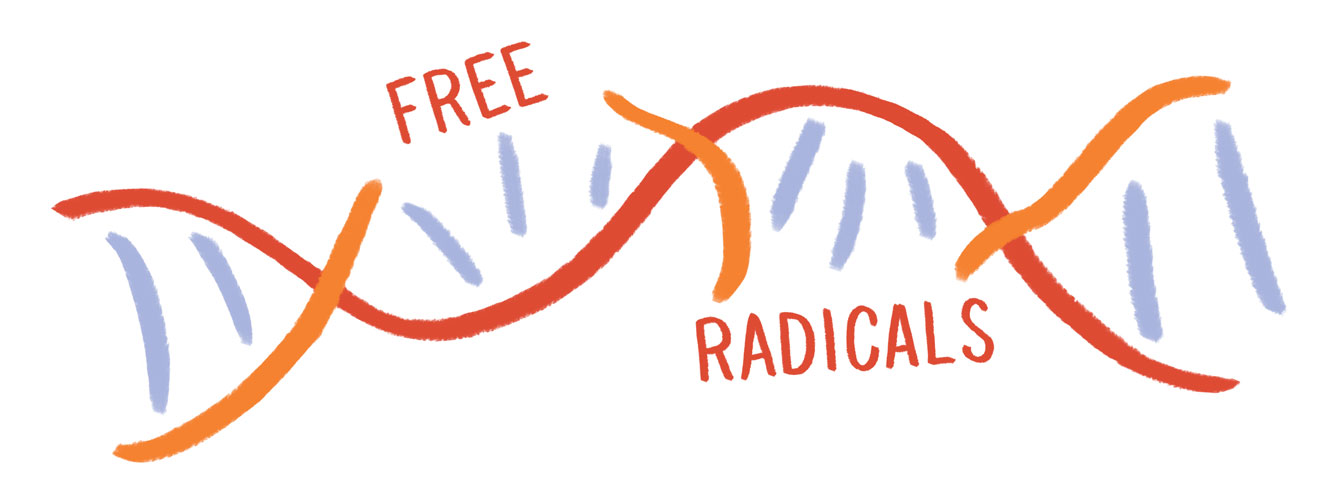
Three black girls work at a laptop, set in front of a blue background overlaid with C programming code. Artwork by Julia Travers .
Having a role model in your field of choice can serve as a strong inspiration and affirmation. Founder of Black Girls CODE Kimberly Bryant wants to be sure young women of color find tech industry role models and mentors right in their local communities. This nonprofit creates opportunities for girls of color ages 7 to 17 to explore the field of tech through workshops, school programs, hackathons and summer camps.
She calls on girls of color to embrace technology because she says the next big thing in tech is yet to be discovered; “the people who will be those inventors and those innovators of the future are these girls.”
Cultural isolation in tech
Bryant speaks from years of experience and expertise; she excelled for decades as a biotech and pharmaceutical engineering manager for various Fortune 100 companies. She remembers experiencing cultural isolation early on during her coursework in Electrical Engineering. “I was one of maybe two or three students of color,” she told CNBC. Now, as a leader in the industry and a mother of a female teen, she’s working to address this imbalance. “I wanted to create more people that look like me and look like my daughter to really fill in the gaps that I saw for myself,” she explains.
Ruthe Farmer, chief strategy and growth officer and director of the K-12 Alliance for the National Center for Women and Information Technology (NCWIT), also spoke to CNBC about the importance of building personal connections and pathways for young women, particularly those of color, to enter the tech world: “There’s no social cost to a boy to take computer science in school. Girls have to take the brave step of saying ‘I love this stuff,’ take a class with 90 percent boys, probably a male teacher, overcome the media message, defy their social group. Add on the layer of being a minority, it’s another challenge.”
Race and gender: a digital divide
In 2016, women made up 26 percent of the computing workforce and less than 10 percent were women of color, according to NCWIT. The Black Girls CODE site points out that lack of regular access to digital tech can be a substantial disadvantage in our society — one that is disproportionately born by people of color. Access to computers, the internet, apps and software is expensive for communities and families to maintain, and communities of color continue to experience higher rates of poverty. The U.S. Census Bureau reports that in 2017 the poverty rate for Black (22 percent) and Hispanic (19.4 percent) individuals in the U.S. is more than double that of non-Hispanic Whites (8.8 percent). In 2015, the Pew Research Center found 5 million U.S. families with school-aged children are without home internet and that, “Low-income households – and especially Black and Hispanic ones – make up a disproportionate share of that 5 million.” While access to technology is not a cure-all for this economic disparity, it can provide youth with useful skills, the opportunity to be creative, and an avenue for mentorship and personal empowerment.
Bryant’s desire to remedy the persistent race and gender digital divide is deeply personal. When her daughter attended a Stanford University video-gaming camp, she told her mom she found the teachers paid less attention to participating girls. “I knew at that very moment I had to do something,” Bryant told the Chicago Tribune. “I wanted to create an easier path for my daughter. I wanted her to have all the opportunities that were available to her. Even though we were living in the heart of [Silicon Valley], she was nothing more at that time than a consumer of technology. She was not a creator of it. And I wanted to change that dynamic”
What Black Girls CODE does
Black Girls CODE was founded in 2011 to offer a wide variety of programming, including its flagship one-day workshop. This hands-on workshop offers girls a day of exercises covering topics such as programming languages like Scratch and Ruby on Rails, web development, virtual reality, game development, robotics, artificial intelligence and more. This educational tech initiative also runs summer camps, “Code Clubs” after school, day enrichment experiences, career panels and field trips. While the focus is on young women of color, everyone is welcome at the programs. Their funding comes in part from a workshop fee, which can be waved through financial-need-based scholarships, as well as from sponsors, partners and donations.
Getting large support grants can be very competitive for educational organizations, and Bryant is discerning about where their funding originates. For example, in Aug. 2017, she turned down a $125,000 grant from Uber. The funds were offered after Uber responded to sexual harassment within it’s company by announcing it would commit millions to organizations focused on diversity in tech. It “seems a bit tone-deaf to really addressing real change in how they are moving toward both inclusion and equity. It appears to be more PR driven than actually focused on real change. So, we turned it down,” Bryant told TechCrunch.
After Bryant’s decision was made public, members of the tech community and other supporters raised over $125,000 from PayPal donations, spearheaded by Slack Head of Communication Design Kristy Tillman, who shared her $1,000 donation on Twitter. Bryant said in our interview that the organization has been on a growth curve that “hasn’t leveled out yet,” though it works “with a very lean staff and team.”
“One of our greatest successes, without any hesitation, is the progress of our girls throughout the program,” Bryant says emphatically. “Many girls have participated in the program for many years,” she continues, “and we’re just starting to see a large cohort of girls who are going on to college, majoring in Computer Science. Some are already there.” She and her colleagues see proof of the program’s influence when these former participants focus on STEM in their post-secondary education and career choices. Individuals who have been part of Black Girls CODE as mentors also deepen their engagement with technology and bring new skills to the workforce. Bryant says “over the next three to five years, the impact we’ve made with girls within our program will really start becoming tangible.”
Unapologetically black and here to stay
Bryan speaks with pride about the racial focus of the organization she founded; when someone tweeted to her that it was “unapologetically black,” she agreed. “That’s right. We are unapologetically black. My goal is to make sure the girls understand there’s absolutely nothing wrong with that. This is about taking pride in our culture and advancing our culture,” she told Fast Company.
So far, the team of staff and volunteers have reached about 8,000 girls through 14 U.S. chapters and one in Johannesburg, South Africa. Black Girls CODE recently accepted a grant from General Motors (GM) and will be teaming up with them to launch a chapter in Detroit. In November, it offered a Robot EXPO at Wayne State University in Detroit, featuring activities with Lego WeDo and EV3 kits, along with live demonstrations from area robotics organizations.
To learn more about Black Girls CODE, visit their website at http://www.blackgirlscode.com/





